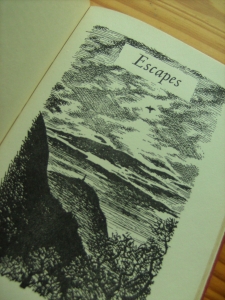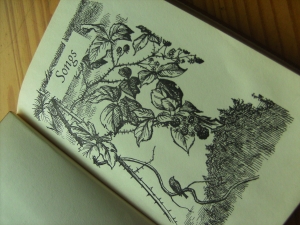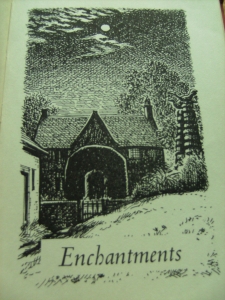
For the purposes of this blog, I really wish I could remember who said something along the lines of ‘he who has books has everything’!!
But I can’t. And anyway, I’m not sure I quite agree. But I often do look at my sagging book shelves and wonder about each of the different worlds that are locked up inside all those covers.

Books sit there so quietly and innocently but sometimes it’s almost as if, if you attend closely enough, you can just about hear a thousand voices living out their stories and ideas in a corner of the room. All you have to do to unleash a world is pull a book off the shelf and turn a page. You might regret it. You might find you’re not at all interested in that world and decide to lock it all up again with a snap of your hands. Or you might become someone a little or a lot different, perhaps almost without knowing it.
Well, my most recent new world has been that of James Alison, as he takes on and develops the theories of Rene Girard. I don’t fully understand a lot of what I read, but somehow it’s got right under my skin and I know there’s something important there. So I keep going back to that world and trying to see a bit further in the presently dim surroundings. Sometimes I’m treading quietly, trying to be a curious but patient and unobtrusive explorer. Sometimes it feels like I’m rattling the doors in frustration. But for now I keep returning and every now and again it’s like I find a street light and I suddenly see for a while.
So I wanted to write down here what I could see before I moved on.
To give a little (very sketchy) background, Rene Girard seems most famous for his theory that human beings desire in imitation of another. For something to have value or interest to us, someone else has to have given that thing their value or interest in advance. That might not seem so earth shattering, but this theory of desire means that we end up desiring the same things as our model, until eventually that model becomes a rival for us. Girard believes that this rivalry builds to such a fever pitch in human communities that eventually a whole community turns on one scapegoat, genuinely believeing that all this conflict is the scapegoat’s fault, and murders that scapegoat. From here a sense of relief and peace emerges and the community begins to attribute that peace to the murder. It starts to deify the scapegoat and set up laws and prohibitions, as well as rituals which repeat the original murder or sacrifice. This is a way of keeping peace amidst communities which are always in rivalry. In other words, culture begins to emerge.
This may all sound a little far-fetched, but the more I read and understand the outworkings, the more I am convinced.
Girard was not a Christian when he first began developing his ideas, but he did see the pattern of desire described above traced throughout myths, legends and much literature including the work of Shakespeare, whom he still believes was very aware of the pattern. However, when he turned to the Old and New Testaments, Girard realised that this was the only text which actually worked in the reverse. In this story, rather than siding with the culture, God was gradually revealing to culture that he sides with the victim, that he has no part in this murder or the sacrifice which seems to us as though it is appeasing God and bringing peace. The story culminates with the cross, with God as the victim himself. And not merely any old victim, but one who returns after death with no hint of vengeance or the tit-for-tat game that characterises human imitation (or ‘reciprocity’ as James Alison calls it).
This really does, I feel, have huge implications for the meaning of the cross, and perhaps more importantly than mere doctrine, for how we live our lives as a result of the meaning of the cross. Plus, how do we see God as a result of this?
But what struck me today was something a bit different. I was listening to an interview with James Alison and someone made the comment that humans don’t only ‘sin’ by desiring or coveting what another desires and therefore entering into rivalry and violence with ‘the other’. We also, for example, sin by omission in not caring enough about another’s needs. To this James Alison replied that the problem is not so much what we do, but who we are. We all think we come into this world as an already formed ‘I’, or at least as an ‘I’ who is hidden inside and will slowly emerge as we mature and grow. There is some truth I think that we have specific genes and personality traits that slowly emerge. But what’s also true is that our ‘I’ is formed by our total imitation of others. We only ever learn to speak because we imitate. We all have to imitate someone, including their desires, in order to even come into being as an ‘I’. If you like, we basically all have to be disciples of someone in order to come into being. We are extraordinary imitating machines and so the ‘I’ that we become is a result of, and heavily entwined with, the imitation of others, without us even knowing it.
James Alison likens a human to one of those glass balls in a fountain sculpture, which appears still although it is supported and held up on a constantly moving jet of water. The ball would not even exist where it is and as it is without the ‘behind the scenes’ jet of water. And whilst we tinker around trying to fix things about the ball, what God wants and needs to do is to sort out the jet of water, which represents our imitation and therefore the rivalrous desires that we have. Another way of looking at it is that we muck about with the software of our behaviour, the symptoms if you like, when God wants to access us at our hardware, our desire and our imitation. This will automatically alter our software. And that’s just the start!
Well, if I haven’t baffled you already and you’re at least a little intrigued by this landscape, look out for a few more street lamps to come!















































